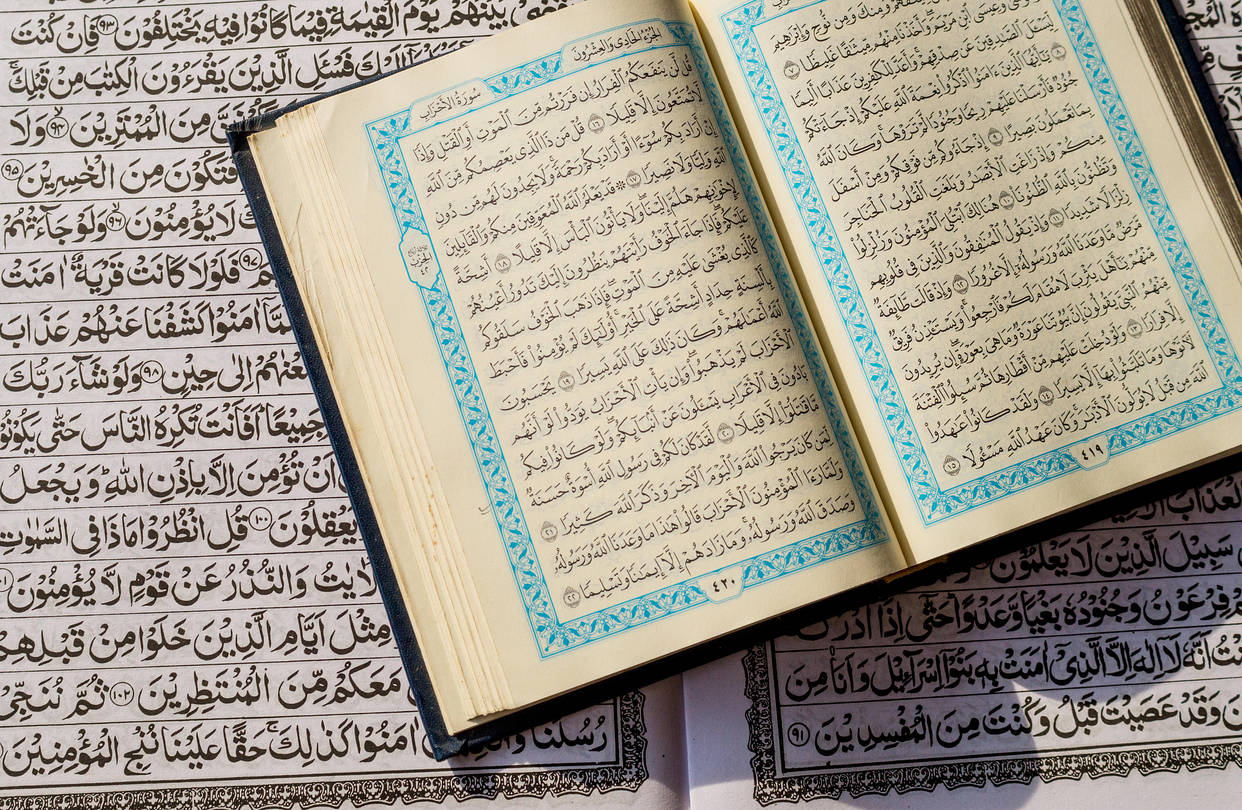Doubts Caused by Evolution
Question: Looking at the fossil record and other evidence for evolution has given me doubts. We know Allah fashioned the other creatures on Earth. The evidence for outlying genetic overlap between humans and ancient primates in a fossil record suggests the groups evolved separately from each other, and so on. We arrive at a very difficult situation where we have to dismiss an excessive quantity of evidence as “coincidence” because otherwise, it would contradict Islam, and from here my doubts began to stem. The very basis which one would assume from the truth of Allah is that creation cannot exist and be the way it is by coincidence, so how could I use the concept of a coincidence to dispel an extensive list of evidence?
Answer:
Wa ‘alaykum assalam wa rahmatullah wa barakatuh
I pray you are well.
Adam Did Not Evolve
We are certain that Adam (Allah bless him and give him peace) did not evolve. He has created in a process the Qur’an and Sunna detail very clearly. The truth of the Qur’an is established through many types of proof: rational proofs, miracles, prophecies that came true, linguistic inimitability, etc.
Therefore, the fact that Adam was created directly, as he was, and that we are descended from him, is clearly established. These proofs are watertight – even if scientists do not work with this type of proof.
What Does the Qur’an Say About Evolution?
The Qur’an does not address the topic of evolution. We know that Allah created everything. All the means and processes He used are known to Him alone. We may observe some of them, but we do not know them all.
The Qur’an calls us to reflect on the way He created things to infer His knowledge, will, power, wisdom, etc. Some refer to this as ‘intelligent design.’ We are sure that Allah created everything, but the process of creation for anything other than humans is not addressed in the Qur’an.
As long as what you have come across does not contradict the above there is scope to look at the evidence and not ignore correlations as coincidence. Adam’s creation and his not evolving are proven in many ways. Therefore any proof you may see regarding evolution has to be understood with the above certainty in mind.
Any conclusions which contradict this certainty must be reevaluated in order to arrive at a conclusion that is in line with reality. Otherwise, there is clearly a flaw in the methodology.
For example, we know that sugar is sweet through a shared experience of the human race. If someone produced convincing scientific proof that it is sour how sound would we judge the conclusion to be?
The Incomplete Fossil Record
This is a matter many scientists have commented on and published works on. Instead of trying to argue it, I’ll point you to some resources that question the theory of evolution as a whole. Personally, I can’t claim to have a detailed argument against it, nor is it something the truth of Islam hinges on. There are, however, some problems some critics – Muslims and Non-Muslims alike – have identified.
Please look at the resources on the Dissent From Darwin website, where hundreds of scientists and medical experts express their skepticism in the ability of random mutations to explain the complexity of life. This should help you reevaluate the evidence.
Also, the book ‘God, Islam, and the Skeptic Mind’ has a very good analysis of the problems Muslims and Non-Muslims have found in the narrative of evolution. Please have look at it.
I also advise you to study theology with an experienced teacher so you can gain an understanding of the strengths of the proofs of the theologians. May Allah facilitate it for you.
I pray that helps.
[Shaykh] Abdul-Rahim
Checked and Approved by Shaykh Faraz Rabbani
Shaykh Abdul-Rahim Reasat began his studies in Arabic Grammar and Morphology in 2005. After graduating with a degree in English and History he moved to Damascus in 2007 where, for 18 months, he studied with many erudite scholars. In late 2008 he moved to Amman, Jordan, where he continued his studies for the next six years in Sacred Law (fiqh), legal theory (Usul al-fiqh), theology, hadith methodology, hadith commentary, and Logic. He was also given licenses of mastery in the science of Quranic recital and he was able to study an extensive curriculum of Quranic sciences, tafsir, Arabic grammar, and Arabic eloquence.
